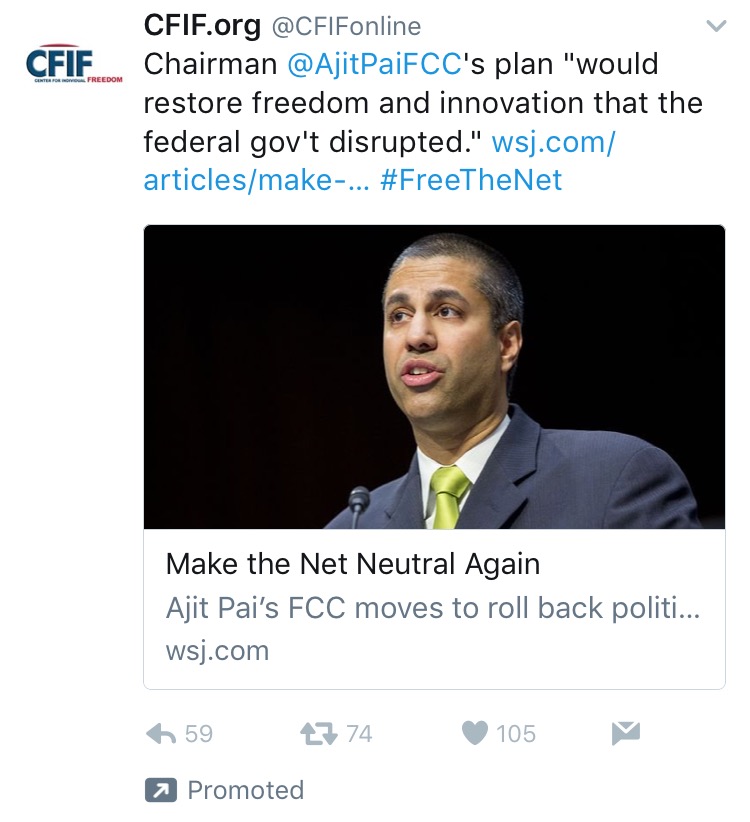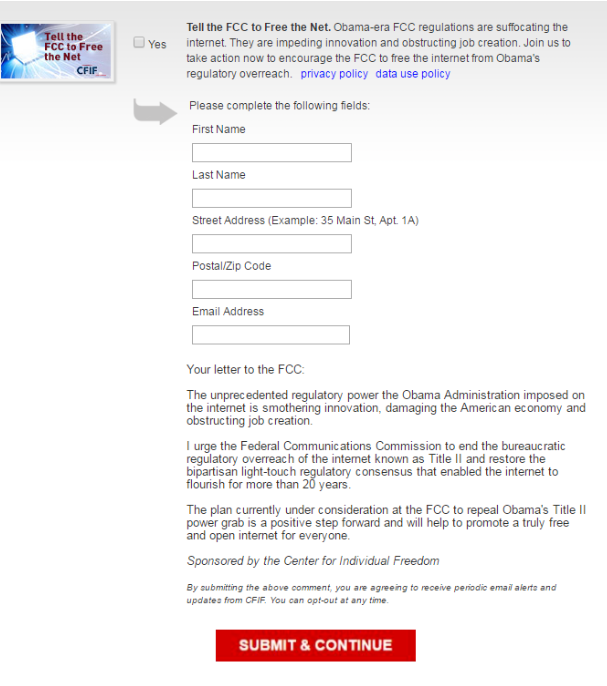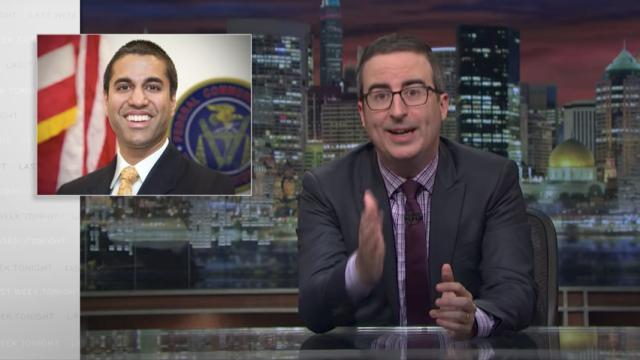Still via YouTube.
In 2014, when the US Federal Communications Commission first proposed its net neutrality rules, a record-breaking 3.7 million comments were filed with the agency, the vast majority of which supported the proposal. Since Ajit Pai unleashed his “weed whacker” proposal to decimate those rules three weeks ago, the comments are pouring in yet again — more than 550,000 have been filed thus far.
Like last time, many of the comments are in favour of the net neutrality rules. But a few days ago, a curious thing started happening: Thousands of identical anti-net neutrality comments came flooding in. First noticed on Reddit and later reported by ZDNet and the Verge, more than 58,000 identical comments supporting Pai’s effort to repeal the net neutrality rules have been filed since the proceeding was opened. More than 17,000 of these cut-and-paste comments were filed in the last 24 hours alone, according to the Verge. (As of press time, the FCC’s commenting system is down again, so we can’t update that figure.)
Even more concerning, however, is that the names and addresses attached to those comments may not belong to whoever filed them. Both the Verge and ZDNet managed to reach a few of the supposed commenters, and found that they had no knowledge of their alleged comments. After we attempted to contact over one hundred individuals associated with the comments, we received three replies. All three said they did not file any comment with the FCC — a woman in Tuscaloosa named Ariehl Kimbrough, had never heard of the FCC or net neutrality. When we explained that her name and address had been used to file this comment, her response was simply a long, drawn-out, “Wow.” Another person, April Williams, when asked for more information via email, told us: “I am upset about this, sorry, but I’m not answering any further questions. More than enough of my information is in the hands of strangers.”
The text of the comment itself, which decries the “unprecedented regulatory power the Obama Administration imposed on the internet,” appears to have originated with the Center for Individual Freedom, a conservative advocacy group based in Virginia. According to tax documents, the group has received at least $US80,000 ($108,633) in funding from the internet provider lobby group the Internet & Television Association, and has also recently promoted at least one tweet about net neutrality:

When asked about its role in the FCC comments, CFIF sent Gizmodo the following statement:
The answer to your question is absolutely no, CFIF is not filing comments under the names of individuals without their knowledge.
CFIF has launched a digital media effort, which leads people to the exact comment text before they sign, confirm and submit. It’s as simple and straightforward as we can make it. See attached. CFIF is also sending email to its activists and others.
The image CFIF attached shows that it’s asking individuals to submit comments with a digital ad campaign, using the language found in the spammed comments.

This doesn’t mean, of course, that CFIF is the one doing the submitting, or that it’s behind the effort. Asked if it would look into the possibility of the form being used to sign up thousands of people without their knowledge, CFIF told us: “If anyone else is corrupting our effort to submit comments under other people’s names, of course we would move swiftly and forcefully to correct.” But when we asked April Williams, one of the supposed commenters, whether she had ever seen this ad, she said she had not.
A spokesperson for the office of Mignon Clyburn, the lone Democrat on the FCC, said he was “not aware of any specific FCC rule that would prohibit” filing comments under another person’s name, but that there may be “other federal statutes” that would apply. He also stressed that “the Chairman’s office is the one that controls the machinery” of these things, meaning it would have to be Pai’s office that instigated any investigation into these comments. A spokesperson for the office of Chairman Pai did not immediately respond to a request for comment.
Sean Moulton, the program manager for open government at the Project on Government Oversight, says it’s not uncommon for these digital campaigns to be used to try to get comments filed on a rule — and sometimes, people “don’t realise they’re submitting comments,” or “are giving permission” for their data to be used.
But it is odd to see so many comments submitted so quickly, and, it seems, by people who didn’t actually submit them. The timestamps on the comments as they were received at the FCC show that in many cases multiple comments were filed each second, and the gap between them was relentless: Even at 2am yesterday, the comments were coming in seconds apart.
Flooding or abusing the federal comments system is not unheard of. In 2016, the progressive advocacy group Allied Progress identified dozens of identical comments against a payday lending rule at the Consumer Financial Protection Bureau. Just months before, journalist David Dayen reported on a private strategy meeting of payday lending companies, where they plotted to overwhelm the agency with comments, or even ask payday loan customers to write out the comments when they come in to apply for the loans. And in 2011, airline and petroleum marketing firms filed thousands of identical comments on a rule concerning securities investments.
And there are duplicate pro-net neutrality comments, too, though there are far fewer identical comments in favour than identical comments against the rules: Recode reports over 30,000 include text saying they “don’t want ISPs to have the power to block websites, slow them down, give some sites an advantage over others, or split the Internet into ‘fast lanes.’” Those, according to Recode, seem to be coming from online forms from Fight for the Future and Demand Progress.
So, who’s using the information of strangers to shill for opponents net neutrality, and try to tip the comments process in favour of Pai’s position? That part is still unclear. And that will continue, unless the FCC looks into it itself. With Pai in charge — and with his declaration that destroying rules net neutrality rules is “a fight that we intend to wage and it is a fight that we are going to win” — don’t hold your breath.
